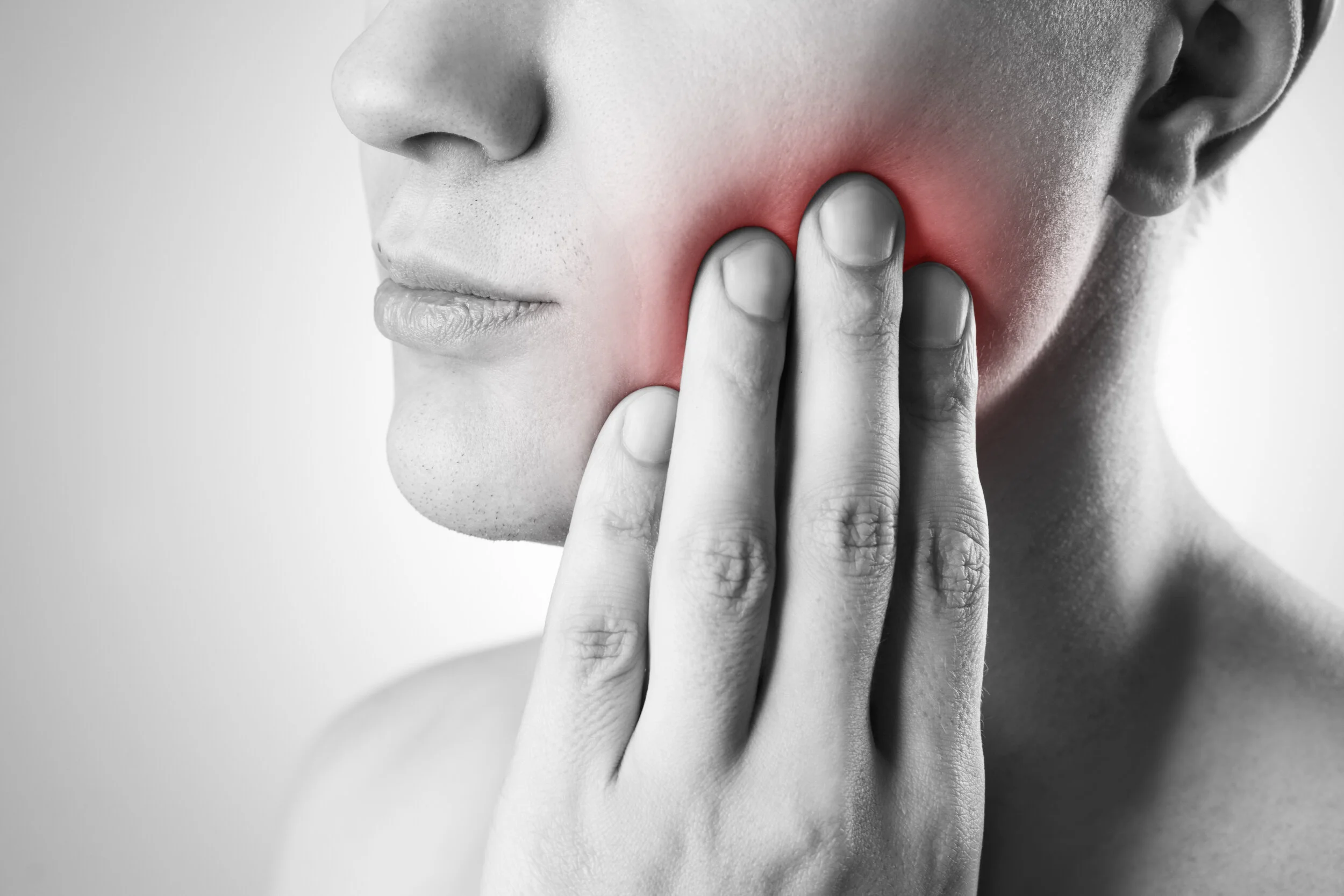TMJ Disorder
Painful or poor dental health can affect every area of life, which is why Kleypas Family Dentistry provides personalized care for TMJ Disorder so that our patients can experience relief and healing.
┃What is TMJ Disorder? What causes TMJ Disorder?
TMJ is an abbreviation meaning “temporomandibular joint”. In your jaw, you have two temporomandibular joints, one on each side, which connect the lower jaw (the mandible), to temporal bones of the skull. Between these two bones is a thin cartilaginous disc which acts to cushion the bones when the muscles open and close the lower jaw during chewing, talking and swallowing. When the lower jaw is centered in its most stable position, the muscles are relaxed and all the teeth touch together at the same time. This harmony allows the joints, muscles and teeth to be protected during chewing function.
When your chewing system is out of balance, caused either by a misaligned bite, trauma, dental work, or artificial tooth movement (orthodontic treatment), the joints must be pulled by the muscles away from their ideal, stable biologic position to make the teeth fit together. Early on, the jaw joints may be able to adapt to this position without any joint or muscle pain or visible damage to the teeth. Over time, however, this biomechanical and physiologic imbalance may result in severe damage to the chewing system, leading to a wide range of symptoms known collectively as Temporomandibular Joint Disorder (TMD) or TMJ dysfunction.
┃How do I know if I have TMJ Disorder? What are the symptoms of TMJ Disorder?
TMJ Disorder or Dysfunction can have a variety of symptoms, ranging from mild to severe. If you are experiencing any of the following symptoms or conditions, you may be suffering from TMJ Disorder:
Unattractive smile
Worn, chipped, cracked or broken teeth and dental work
Painful facial or neck muscles
Upper back or shoulder pain
Jaw joint soreness or pain
Headaches or migraines
Difficulty or pain with chewing
Grinding or clenching of the teeth
Jaw popping or clicking or grating noises
Loose teeth or receding gums and bone
Shifting bite
Ear pain, congestion or ringing in the ears
However, not everyone experiences the same symptoms, and many people who suffer from TMJ Disorder may not connect their chronic pain or symptoms to the improper bite relationship of their teeth. It is also possible to suffer from TMJ dysfunction without painful or chronic symptoms, and so unknowingly cause progressive damage to your teeth, joint and muscles because the condition is left undiagnosed and untreated.
┃Can children can suffer from TMJ Disorder?
Yes. Children can also suffer from TMJ Disorder. Because the temporomandibular joints are still developing throughout childhood, it is important to evaluate your child’s oral health in order to prevent long-term misalignment or painful symptoms. Chronic, multiple ear infections in your child may be an indication of a TMJ trauma, which can manifest later (usually by age 16) in your child’s life as pain or clicking. Proper identification and treatment can reduce pain and prevent adverse changes to the TMJ. If you are concerned about symptoms your child may be experiencing, you should request an appointment with Kleypas Family Dental for an evaluation and to discuss treatment options for chronic symptoms.
┃What treatments are available to help with my TMJ Disorder?
To determine if you are suffering from TMJ Disorder, we recommend a full evaluation with Dr. Kleypas at our office in Cypress, TX. The dentist will perform a comprehensive oral examination, review your medical and dental history, and discuss your symptoms. Following your consultation, the dentist will develop a treatment plan that is customized to your condition and designed to alleviate your painful symptoms while restoring the proper functioning and alignment of your temporomandibular joints.
In order to effectively treat TMJ Disorder, our dentist will design a treatment plan to specifically meet your unique needs. Some examples of treatment include:
Lifestyle therapies and adjustments
Night guards
Facial exercises
Medications
It is important to consult with an expert in dental and oral health care in order to properly diagnose and treat conditions caused by TMJ disorder or dysfunction. Our dentist at Kleypas Family Dental specialize in diagnosing and treating TMJ Disorder for the Cy-Fair area and strive to help every patient enjoy optimal oral and dental health.

